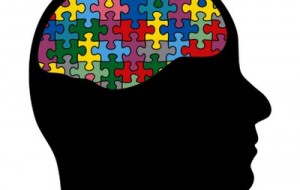Do Autistic people live in their own little world?Autistic people do live in their own world, but not in the way most people think they do.
Autistic people are in their own world in the sense that they don’t have a cultural identity. “Neurotypicals” tend to identify with one or more specific cultures to the point that they’re incapable of distinguishing their individual identity from the group identity and their individual beliefs from the group’s beliefs.
Question the religious views of a Christian, a Jew or a Muslim and they all tend to feel personally offended, even though you’re merely questioning their views and not them as a person. The same applies to political views or any views held so dearly people identify with them.
Alongside group identity, “Neurotypicals” also develop shared faith / prejudice. “Faith” and “prejudice” and are respectively positive and negative labels given to the same attitude and behavior : believing something very strongly without being able to prove it. A key advantage of shared faith / prejudice is that it simplifies communication among people of the same cultural background. People know what to expect from each other and how to behave in another’s presence with barely any information at all. A key disadvantage, however, is that this strategy often fails when people come in contact with others who don’t share the same cultural faith / prejudice.
Autistic people lack the “implicit learning” mechanism that is responsible for this kind of group thinking, which is what makes us much more individual in our cognition, our emotions and our communication styles. While Autistic people do adopt a lot of behavior and knowledge from their environment like anyone else, they do so much more consciously and are consequently much less emotionally attached to this behavior and knowledge.
Autistic people therefore tend to hold less faith / prejudice than “Neurotypicals”, which — in a sense — makes them more flexible than “Neurotypicals”. A downside of this, however, is that this complicates communication with “Neurotypicals” and culturally isolates Autistic people from their environment.
In a way, Autistic people have their own unique individual cultures. In that sense, we truly do live in our own little worlds. We live in our own little worlds, not because we choose to or because we fail to understand the world we live in (some Autistic understand actually the world far better than many “Neurotypicals”), but because our inability to relate to the culture we live among sets us apart from that culture.
Consider how it would feel to be a North-American or Western-European living as the sole immigrant in a rural community in East-Asia, sub-Saharan Africa or South-America. That is exactly how a person with Autism experiences every day social interactions.
Ironicly, this makes Autistic people more adapted to living among people of a different culture. One one hand, it’s because people tend to be more forgiving about social mistakes and quirky behavior when faced with a foreigner. On another hand, that’s because people with Autism are so used to living among people who identify with a culture that feels alien to them that actually living among a foreign culture feels only marginally more alien than their every day experience.
Source











